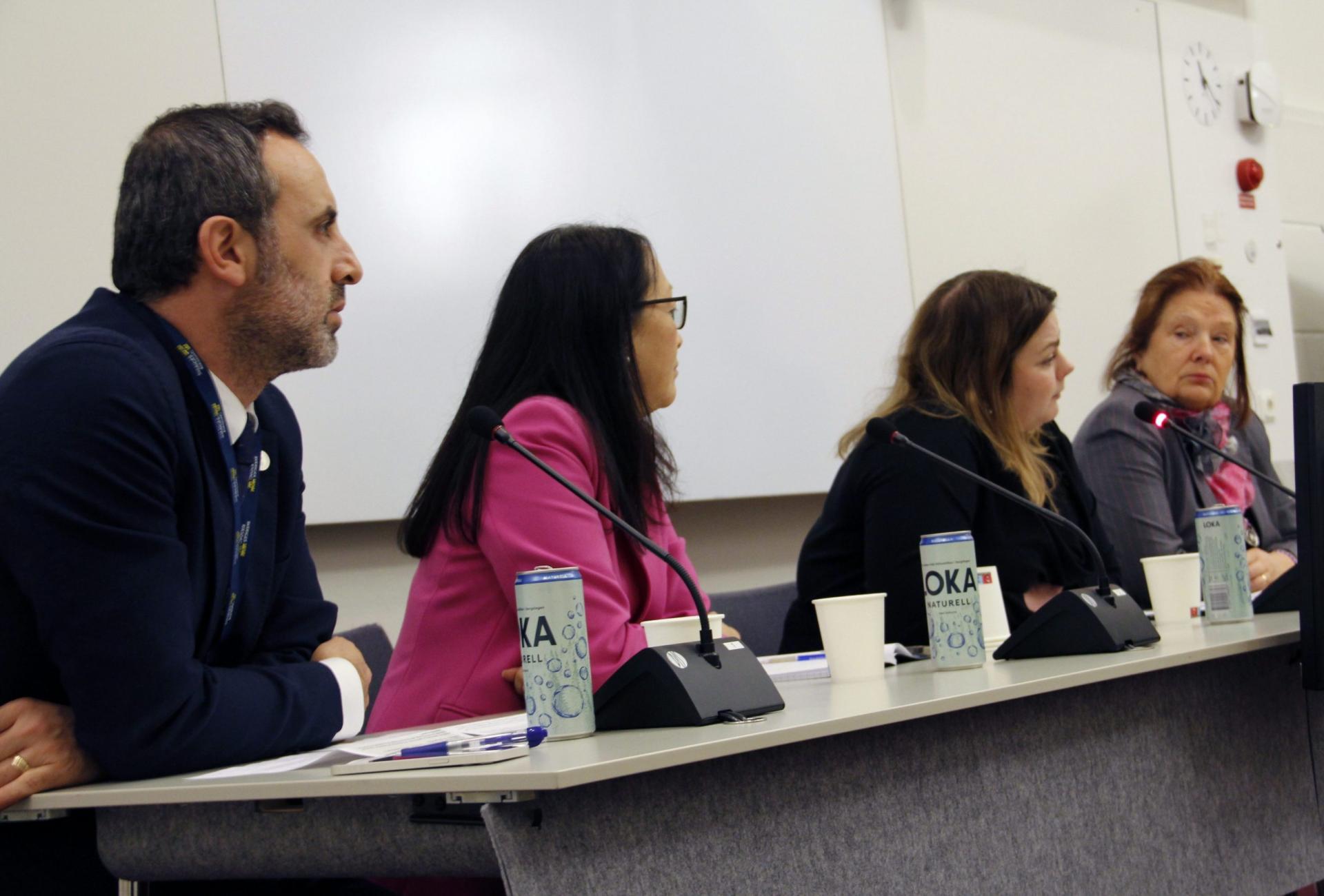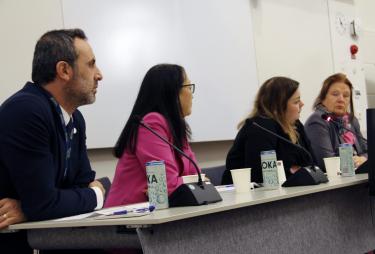The role of religious freedom in Swedish foreign and development policy


Democracy is retreating in many parts of the world, and we are seeing increased polarization based on issues of values related to culture, religion, and equality. In this environment, how can Sweden, as an internationally recognized strong voice for human rights, act within its foreign and development policy? What can decision-makers, officials, and various development actors do to promote an open and democratic culture, in a time of international division?
Based on these issues, a seminar was organized on 15 November at the Swedish parliament by the Christian Democrats and the Left Party in collaboration with SMC Faith in Development. The seminar was attended by, among others, the UN’s special rapporteur for freedom of religion and belief, Dr. Nazila Ghanea; The Ministry of Foreign Affairs special envoy for intercultural and interreligious dialogue, Ulrika Sundberg, and members of parliament Gudrun Brunegård (KD), Lotta Johnsson Fornarve (V), Linnea Wickman (S), Katarina Tolgfors (M) and Yusuf Aydin (KD).
Dr. Nazila Ghanea’s and Ulrika Sundberg’s presentations can be viewed here and here.
Kristina Patring, religious freedom expert at SMC, contributed with concrete examples from different parts of the world on how freedom of religion and belief can be strengthened. She states after the meeting:
– It is extremely positive that today we heard a broad political panel from the foreign affairs committee agree on the need to raise and clarify freedom of religion and belief in foreign policy, trade policy, and aid policy, and that there is a general need for an increase in knowledge both about the right and the role of religion in society in general.
– At the same time, the conversations in the panel and the questions during the seminar showed the importance of recognizing how domestic debates about, for example, Quran burnings and how they in turn affect Sweden’s position in the world tend to put freedom of expression and freedom of religion in unnecessary opposition. As we write in our FAQ, there is reason to be vigilant about how the practical exercise of freedom of religion and belief may be affected when the parliament reasons restrictions on freedom of expression based on Swedish security.
Niklas Eklöv, adviser at SMC and moderator during the seminar adds:
– From SMC’s side, we wanted to contribute with a broad and up-to-date overview of how freedom of religion and belief is central to all work for democracy, human rights, and sustainable development. We also wanted to create an opportunity for dialogue on how Sweden’s foreign policy can be sharpened in terms of promoting freedom of religion and belief for all. Both of these objectives were met, which we are happy about. On the other hand, much more is needed in terms of concretisation and systematisation both in the government’s management of foreign and development policy, and in the implementation by Swedish authorities and embassies. Therefore, discussions and work must continue, not least with the parliament’s committee on Foreign Affairs, the Ministry of Foreign Affairs, and Sida.
Advocacy with Faith in Development
We are knowledge based, working with freedom of religion or belief, religious literacy and development policy.
